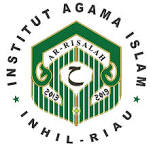Enhancing Vocabulary Acquisition through Total Physical Response: A Case Study at Al-Munawwarah Elementary School, Riau
DOI:
https://doi.org/10.61104/jq.v3i2.1111Abstract
This study investigates the implementation of the Total Physical Response (TPR) method in enhancing English vocabulary acquisition among elementary students at Al-Munawwarah Elementary School, Sungai Guntung, Kateman District, Indragiri Hilir, Riau. Using a qualitative approach, the research explores both teacher strategies and student engagement during TPR-based instruction. Data were collected through classroom observations and interviews with English teachers and students. The research subjects comprised 30 students from grades 1 to 6, and the primary informants were English teachers. Results indicated that TPR significantly improved student participation and vocabulary retention, especially among younger learners. However, challenges such as inconsistent application and difficulties in miming abstract vocabulary items were noted. The study concludes that while TPR is a valuable instructional method for young learners, its success depends heavily on teacher preparation and adaptability. Recommendations include structured training programs for teachers and the development of curriculum materials that support consistent and creative TPR integration
Downloads
References
Asher, J. J. (1977). Learning another language through actions: The complete teacher's guidebook. Los Gatos, CA: Sky Oaks Productions.
García-Sierra, A., Rivera-Gaxiola, M., & Kuhl, P. K. (2021). Action-based language learning and its impact on children’s brain responses. Journal of Experimental Child Psychology, 204, 105063. https://doi.org/10.1016/j.jecp.2020.105063
Hussain, S., & Khan, S. (2020). The effectiveness of TPR in improving vocabulary of primary level ESL learners. International Journal of English Linguistics, 10(1), 80–90. https://doi.org/10.5539/ijel.v10n1p80
Lin, H. L. (2015). Total Physical Response as a method for teaching vocabulary to young EFL learners. The Asian EFL Journal, 17(2), 130–150. https://www.asian-efl-journal.com/main-journal/total-physical-response-method/
Nation, I. S. P. (2013). Learning vocabulary in another language (2nd ed.). Cambridge: Cambridge University Press. https://doi.org/10.1017/CBO9781139858656
Richards, J. C., & Rodgers, T. S. (2014). Approaches and methods in language teaching (3rd ed.). Cambridge: Cambridge University Press. https://doi.org/10.1017/9781009024535
Suharyadi, S. (2020). Implementation of Total Physical Response (TPR) method in teaching vocabulary at elementary school. Journal of English Education and Teaching, 4(2), 123–132. https://doi.org/10.33369/jeet.4.2.123-132
Widodo, H. P. (2005). Teaching vocabulary to young learners: The use of Total Physical Response method. English Education Journal, 2(1), 45–59. https://ejournal.upi.edu/index.php/EEJ/article/view/478
Downloads
Published
How to Cite
Issue
Section
License
Copyright (c) 2025 Susilawati, Oki Sumariyani

This work is licensed under a Creative Commons Attribution-ShareAlike 4.0 International License.











 This work is licensed under a
This work is licensed under a 